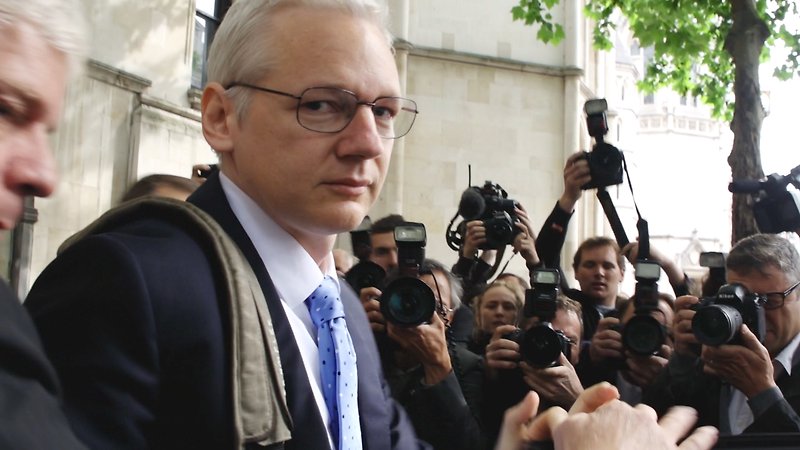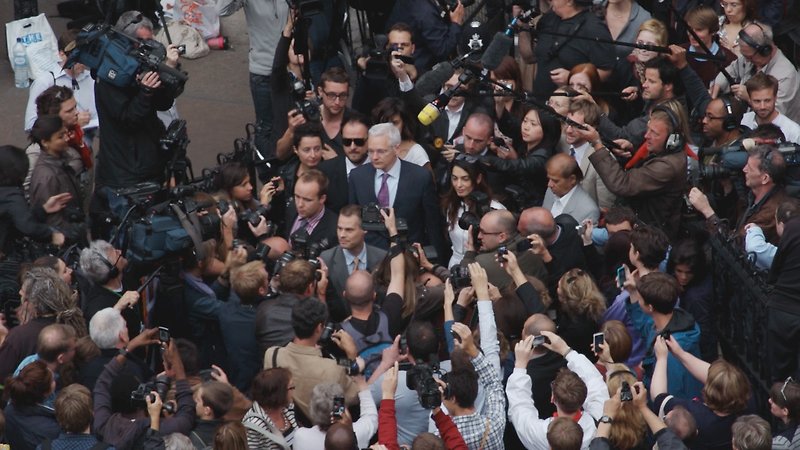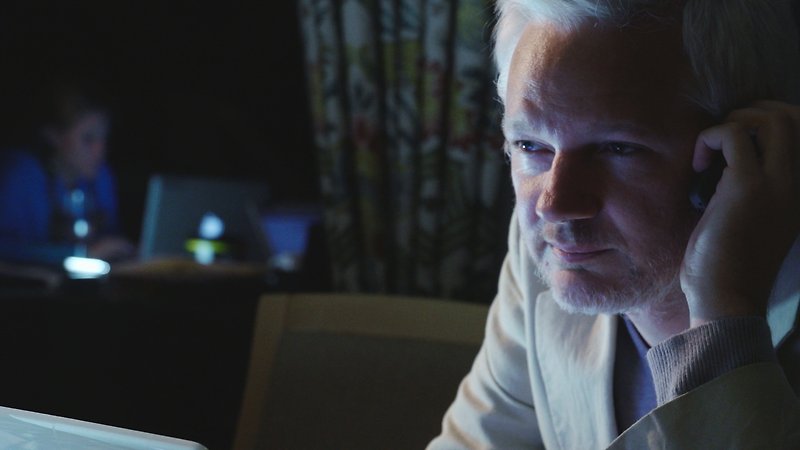Dramatically revised since its 2016 Cannes premiere, Laura Poitras’ years-in-the-making, all-access documentary about Julian Assange provides a deeply revealing portrait of a man who would change the world.



A messier, weirder, and more interesting documentary than Citizenfour, about a messier, weirder, and more persistently relevant man.
Screened as part of NZIFF 2017
Risk 2016
Julian Assange loathes Risk. Or he loathes, at least, what Risk has become. When it premiered at Cannes in 2016, Laura Poitras’ film presented a mostly admiring portrait of the WikiLeaks founder. It has since been updated, and updated again. WikiLeaks’ controversial role in the US presidential election is part of that evolution, but Poitras’ revisions are more profoundly spurred by a deepening suspicion about Assange’s character, particularly around his response to sexual assault allegations.
Seven years in the making, Risk is a thematic sibling to Citizenfour, the Edward Snowden feature that won Poitras the 2015 Oscar for Best Documentary. The access is extraordinary. We see Assange marshalling his cohorts as if they were an intelligence agency. Telephoning the US State Department, demanding to speak to Hillary Clinton. Taking on an elaborate disguise for the dash to the Ecuadorian embassy in pursuit of political asylum.
Spellbinding and at times disquieting, Risk explores the moral and ethical debate sparked by WikiLeaks, the impact of which has been felt throughout journalism and politics. But at its core it is a study of an individual whose brilliance risks becoming subsumed by narcissism, with a startling attitude to those who challenge him – and a filmmaker unwilling to remain a bystander. The most conspicuous change in the re-cut Risk is a voiceover from the director herself. “The lines have become blurred,” she says, drawing on notes from her production journal. “I thought I could ignore the contradictions... I was wrong. They are becoming the story.” — Toby Manhire